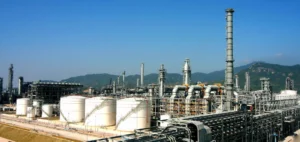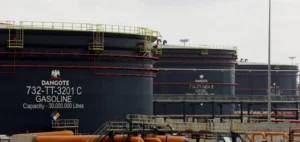Heat waves have had a major impact on refineries in Southern Europe. They disrupted supplies and increased refining margins.
Disruptive factors and strengthening margins :
Analysts and market sources note that extreme temperatures have reduced refining activity in Southern Europe. Other factors include limited stocks, unplanned breakdowns and loss of Russian raw materials.
According to the International Energy Agency (IEA), the recent heat waves, combined with these factors, have contributed to a “reduction in supply” and a strengthening of refining margins.
The IEA stresses that this situation has created a favorable environment for margins, comparable to that of 2022.
Specific impacts and forecasts :
“Refineries don’t like high temperatures…. Their operating rates are low, which is also good for margins,” TotalEnergies CEO Patrick Pouyanné stressed last month at a meeting with investors.
The gap between the prices of diesel, petrol and high-sulphur fuel oil has widened. Extreme temperatures hit southern Europe in July, topping 40 degrees Celsius. Although temperatures have since eased, they remain in the low 30°C range and are expected to exceed 35°C by the end of August. The IEA has revised downwards its refining estimates for several Mediterranean countries, attributing the reduction to high temperatures.
Impact on operations :
Market sources indicate that some refineries are still maintaining reduced operating rates after cutting production in July. Extreme temperatures are forecast again at the end of August, which will probably keep these rates low. Refineries remain cautious ahead of the heat wave. High temperatures also affect the operation of secondary units such as fluidized catalytic converters (FCCs) and hydrocrackers.
Future prospects and analysis :
Refining margins rose sharply, especially for diesel and gasoline. Analysts point out that demand has not yet returned to pre-pandemic levels, but refining activities are unable to keep up with demand, which is contributing to higher margins. The disruption to operations and breakdowns created an imbalance between supply and demand.





















